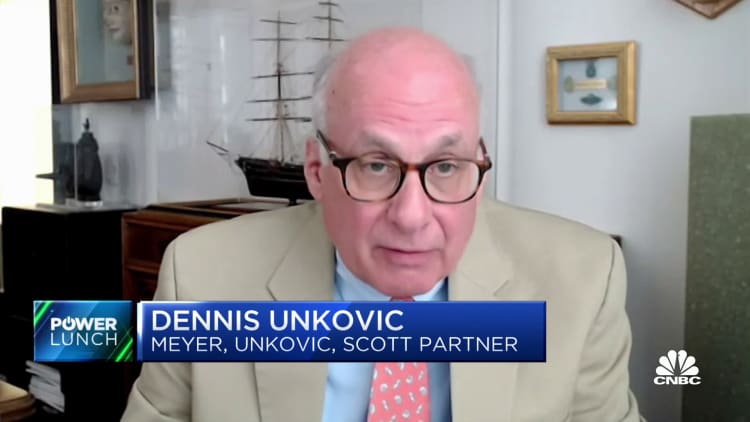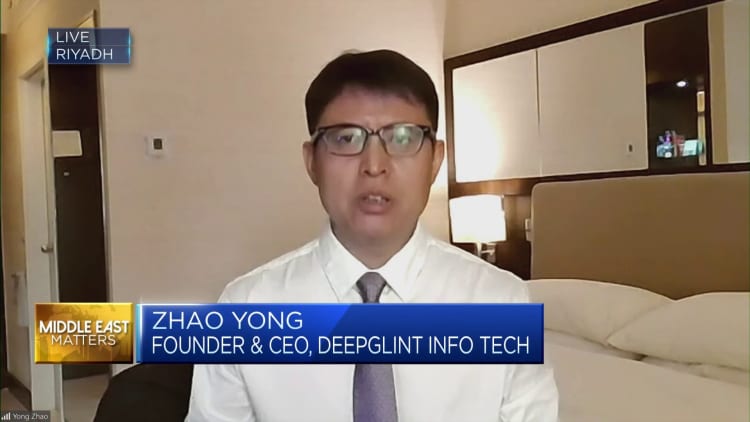[ad_1]
Asia Pacific leaders are in Singapore for this weekend’s Shangri-La Dialogue, Asia’s eminent defense summit where the region’s security issues will be in sharp focus. The United States said China declined an invitation for their defense ministers to meet at the June 2-4 meeting.
Ted Aljibe | Afp | Getty Images
Will they, or won’t they?
Ahead of this weekend’s Shangri-La Dialogue security summit in Singapore, much speculation centered on a possible meeting between U.S. Secretary of Defense Lloyd Austin and his Chinese counterpart Li Shangfu.
Both are among the global defense leaders who will gather in the city-state to discuss the most pressing security challenges in Asia.
Late Monday, China confirmed the attendance of its defense minister at the forum, around the same time that the Pentagon said China had declined a request from the U.S. for a meeting between the two defense chiefs.
Ties between Beijing and Washington hit a new low when Nancy Pelosi, the U.S. House Speaker at that time, visited Taiwan in August despite China’s warnings to the U.S. to honor its commitment to the “one China” principle.
Earlier this year, U.S. Secretary of State Antony Blinken postponed his trip to Beijing after Washington shot down what it described as a possible surveillance balloon off the coast of South Carolina. China insisted the balloon was not intended for spying.
“It doesn’t surprise me there is no meeting, given the strained relationship now,” said Drew Thompson, a former U.S. defense official who is now a senior visiting research fellow at the Lee Kuan Yew School of Public Policy in Singapore.
“Any meeting between Austin and Li would reassure other countries in the region, but I don’t think it would change the security dynamic or the potential for instability.”
Regional concerns were underscored recently with the Pentagon saying that a Chinese fighter jet made an “unnecessarily aggressive maneuver” against an American reconnaissance plane in the South China Sea late last week.
Under President Xi Jinping’s leadership, China has grown more hawkish on the global stage, particularly in its historic claims over Taiwan and the South China Sea. The latter is a strategic waterway rich with resources such as oil and gas.
It has been a flashpoint in Asia-Pacific for at least the last decade as China has grown more assertive with its burgeoning economic clout bolstering its global influence. Brunei, Indonesia, Malaysia, the Philippines, Taiwan and Vietnam also have competing claims to parts of the waterway, a vital trade route.
“We’re caught in the sort of security dilemma in the region,” said Chin-Hao Huang, author of “Power and Restraint in China’s Rise” and associate professor of political science at Yale-NUS College in Singapore.

“Some countries may be trying to bolster their own defense capabilities, in order to deter any kind of threat emanating from China, but China will interpret this defense build-up as an affront and they in turn double down and accelerate their military advancements,” he added.
China’s foreign ministry did not immediately respond to a CNBC request for comment.
At a regular press briefing on May 19, Chinese foreign ministry spokesperson Wang Wenbin said China has no taste for “coercion and bullying” when asked about U.S. foreign policy. “We have always taken a clear-cut stand against hegemony, unilateralism and coercive diplomacy.”
As it stands, China is set to increase defense spending this year by 7.2% to 1.56 trillion Chinese yuan ($220 billion) — its fastest pace of annual increase in four years.
“This kind of action reaction dynamic actually causes a great deal of concern and actually increases tensions, compounded by a lack of trust and dialogue,” Huang added.
What’s on the agenda?
The Shangri-La Dialogue, organized by the International Institute for Strategic Studies and now in its 20th iteration, offers nations an opportunity to engage in dialogue. The forum is typically characterized by a flurry of bilateral and multilateral meetings on the sidelines of the main program.
Australian Prime Minister Anthony Albanese will deliver this year’s keynote address on Friday.
“What you are seeing is the emergence of a regional security architecture,” said Thompson of the LKY School. “The region is really coming together with a common interest in regional security and stability.”
This is underscored by the range of bilateral and multilateral initiatives that have emerged in the last few years, including the new strategic agreement between Vietnam and the Philippines, improving relations between Japan and South Korea and the resumption of the Quadrilateral Security Dialogue between Australia, Japan, India and the U.S.
“China has the option to be a part of this, if they choose to,” Thompson added. “But Beijing would need to effectively change its approach and consider the impact of coercive policies towards its neighbors, whether it’s military pressure towards Taiwan, economic coercion against Korea and Japan, or simply not recognizing international law.”
Meetings in Singapore

Upcoming opportunities include the G20 leaders’ meeting in New Delhi in September and the Asia Pacific Economic Cooperation leaders’ meeting in San Francisco in November.
Until then, the specter of these feuding superpowers will likely cast a pall on all other nations.
“The U.S. will try to drum up its role and influence, with increasing reliance on its military advantages and capabilities because it is concerned with losing its superpower status,” Huang from Yale-NUS said.
“From Asia, however, the priorities may be rather different,” he added. “Instead of engaging in an all-out arms race, countries in the region respond to and deal with China pragmatically because they are in such close geographical proximity and often cannot afford to take on tough rhetoric or containment-like approaches that emphasize military capabilities.”
He said the most important thing to regional stability is ensuring that there is continued access to trade and economic development.
“So, there’s a bit of a disconnect with U.S. foreign policy approaches that tend to over-emphasize military or security deterrence as the default response to China’s rise,” Huang added.
—CNBC’s Evelyn Cheng contributed to this article.
[ad_2]

